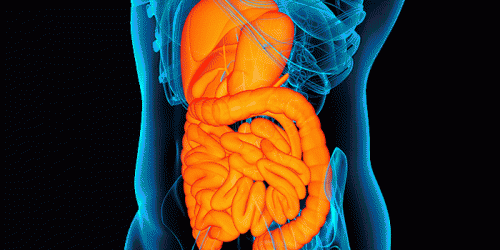Bacteria in the gut help the body to digest food, and stimulate the immune system. A PhD project at the National Food Institute, Technical University of Denmark, examines whether modulations of the gut bacterial composition affect intestinal integrity, i.e. the ability of the body to maintain a well-regulated barrier function that hinders bacteria from entering the body unintentionally.
The human gut contains more than 100 trillion bacteria, which help the body digest food, produce vitamins protect against disease-provoking bacteria in food, and stimulate the immune system. All these bacteria are separated from the rest of the body by the intestinal wall, which functions as a selective barrier aimed at allowing only useful substances to pass and be absorbed in the body.
Ellen Gerd Christensen, PhD student at the National Food Institute, has examined whether a change in gut bacterial composition affects intestinal integrity. Results show that increased intake of whole-grain wheat increases the number of bifidobacteria, which are considered beneficial for human health. In addition, the study indicated that bifidobacteria may have a negative effect on intestinal integrity. However, subsequent animal testing in rats showed no changes in intestinal integrity after dosing with live bifidobacteria.
Antibiotics also have an effect
In addition, experiments in rats showed that administration of antibiotics, which cause immense changes in the bacterial gut composition, have an effect on intestinal integrity in either a positive or negative direction, depending on the specific antibiotics.
The findings of this PhD project can be used to clarify how changes in the composition of the natural gut bacterial community may affect intestinal function and permeability.
More information: Read Ellen Gerd Christensen's PhD thesis (PDF): www.food.dtu.dk/english/~/medi … ationer/Pub-2014/PhD%20thesis%20Ellen%20Gerd%20Christensen.ashx
Provided by Technical University of Denmark



















